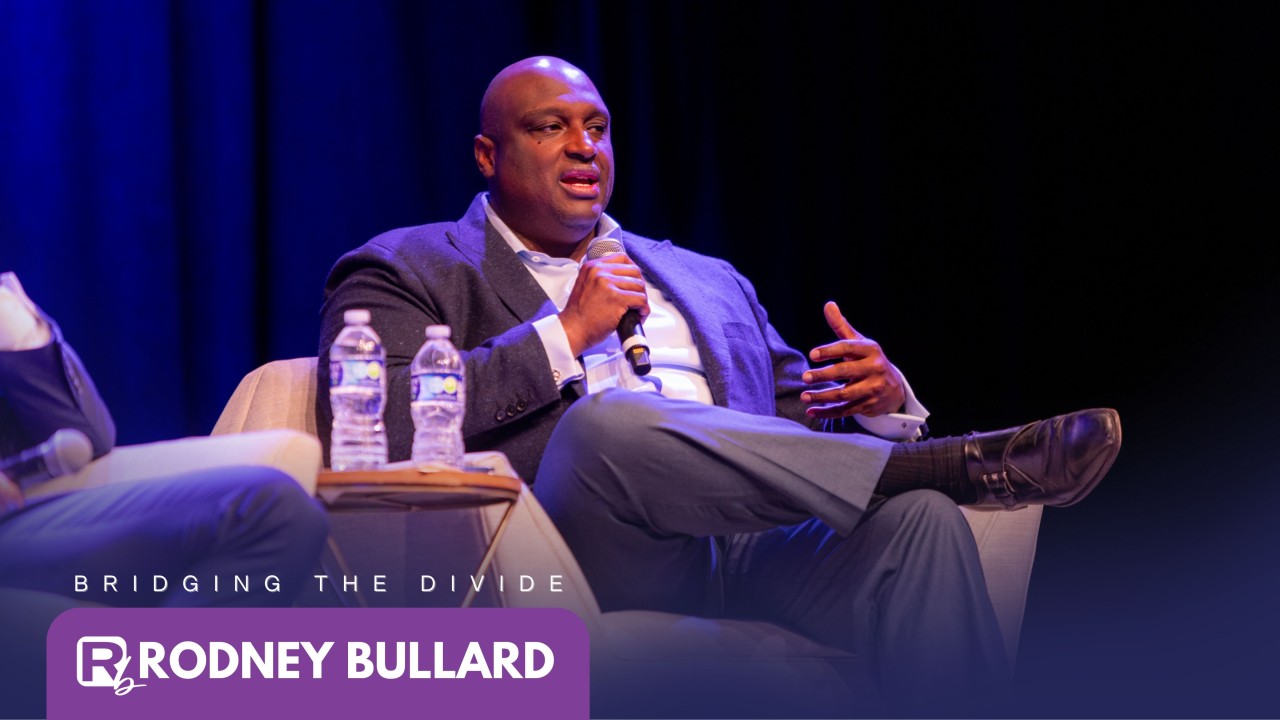
Unlocking Potential: The Role of Inclusive Leadership
Rodney Bullard
CEO The Same House PBC | Former Senior Executive at Chick-fil-A / Global CSR, ESG and Marketing Leader | Best-Selling Author | Former AUSA | Former Air Force JAG l Corporate and Non-profit Board Director
In today’s increasingly diverse world, leadership is being redefined. It’s no longer enough to simply lead with authority; effective leadership today requires an inclusive mindset. Inclusive leadership means fostering an environment where all individuals, regardless of their background, feel valued and empowered to contribute their unique perspectives. It’s about creating spaces where diversity isn’t just accepted but celebrated, where everyone has a voice, and where leaders recognize that innovation and growth stem from embracing the differences that make us human.
As we unlock the potential of our teams, businesses, and communities, inclusive leadership stands at the forefront of this transformation. Leaders who prioritize inclusivity understand that their teams’ success—and the success of their organizations—is tied directly to how well they leverage the diverse talents and viewpoints within their ranks.
In this blog, we’ll explore the importance of inclusive leadership, how it fosters innovation and growth, and practical ways to implement it in everyday leadership practices.
What is Inclusive Leadership?
Inclusive leadership is a leadership style that actively seeks out, values, and integrates diverse perspectives to drive decision-making, innovation, and organizational success. It’s about more than just diversity; it’s about creating an environment where everyone feels they belong and where their contributions are appreciated and respected. Inclusive leaders recognize that every individual, regardless of their background, brings something valuable to the table.
It’s essential to distinguish between diversity and inclusion here. While diversity focuses on representation—making sure people from various backgrounds are part of the team—inclusion is about ensuring those people are fully integrated into the team. It’s about creating a culture where people are not only present but also heard, respected, and empowered.
For inclusive leaders, this means more than just bringing diverse people together; it means fostering a workplace where those individuals are given the opportunities, support, and resources they need to succeed. Inclusive leadership encourages open communication, values unique perspectives, and promotes collaboration across all levels of the organization.
Why Inclusive Leadership is Critical to Success
In the modern business environment, the case for inclusive leadership is clear. Research consistently shows that companies with more diverse teams outperform their competitors in terms of innovation, problem-solving, and profitability. Diverse teams bring a wider range of ideas, experiences, and solutions to the table, which helps organizations adapt more effectively to an ever-changing market.
Inclusive leadership is crucial for several reasons:
Same House Perspective: Embracing Inclusivity
At Same House, the principles of inclusivity have always been central to our mission. In our work with diverse communities, we have seen the power of inclusion firsthand. Whether we’re working with youth, corporate leaders, or nonprofits, we recognize that lasting change comes when all voices are included in the conversation.
One of our most impactful initiatives was a leadership development program aimed at young people from underrepresented backgrounds. In designing this program, we made it a priority to include perspectives from students, teachers, community leaders, and business professionals. By engaging all stakeholders, we ensured that the program addressed the real needs of the participants and gave them the tools they needed to thrive.
How Inclusive Leadership Unlocks Potential
Inclusive leadership is about more than just creating a diverse team; it’s about unlocking the full potential of that team. When leaders foster an inclusive environment, they tap into the unique talents, experiences, and perspectives of each team member. This leads to greater creativity, innovation, and collaboration.
Here’s how inclusive leadership unlocks potential:
One company that has embraced inclusive leadership to great success is Salesforce. Under the leadership of CEO Marc Benioff, Salesforce has made inclusivity a top priority. The company has focused on creating an environment where all employees feel valued, regardless of their gender, race, or background.
Benioff has been a vocal advocate for pay equity, launching an internal audit to ensure that men and women at Salesforce are paid equally for equal work. He has also emphasized the importance of diversity in leadership, working to increase the representation of women and people of color in leadership positions.
These efforts have not only improved employee satisfaction at Salesforce but have also contributed to the company’s overall success. By fostering an inclusive culture, Salesforce has attracted top talent and positioned itself as a leader in innovation and corporate responsibility.
Another example comes from the hospitality industry, where Marriott International has been recognized for its commitment to diversity and inclusion. Marriott’s leadership understands that an inclusive culture leads to better guest experiences, more engaged employees, and a stronger bottom line. By embracing inclusive leadership, Marriott has consistently ranked as one of the best places to work, while also maintaining a competitive edge in the marketplace.
How to Become an Inclusive Leader
Inclusive leadership doesn’t happen overnight—it requires intentional effort and a commitment to continuous learning. Here are some actionable steps you can take to become a more inclusive leader:
Takeaways:
Inclusive leadership is the key to unlocking potential in today’s diverse and dynamic world. By embracing the power of inclusion, leaders can create workplaces where everyone feels valued, innovation thrives, and success is shared. As leaders, it’s our responsibility to foster environments where all voices are heard, and all individuals have the opportunity to succeed.
CEO at Bold Barter
1 个月Rodney an awesome newsletter and a great topic to pass on to leadership teams to spread and practice this diversity inclusivity.
SVP, Director of Treasury Services Product Management at Ameris Bank
1 个月Insightful!
Insightful
CEO @ I Will Survive, Inc. | Combat Veteran | Health and Wellness Advocate | Speaker | Mentor | 40 Under 40 | Kelly Clarkson Show Rad Human
1 个月Very informative
CEO Founder
1 个月Love this!!